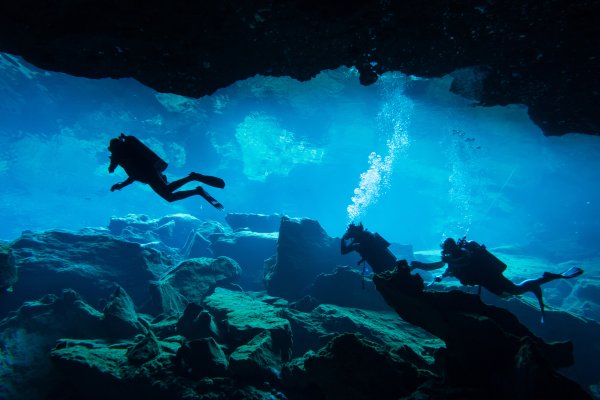
Karst aquifers provide ~25% of the drinking water resources for human societies and underly roughly 10% of the global land surface. Because of the rapid movement of water and pollutants through these aquifers, they are particularly vulnerable to human impacts including sea level rise and agricultural, industrial, and urban development. In karst regions, unknown quantities of groundwater discharge into coastal marine environments at submarine springs. Such springs are common and known to locals and a global community of cave divers, but have received no significant attention from scientists to date. The primary objective of this proposal is to develop and test approaches for quantifying the biogeochemical and ecological impacts of submarine springs on coastal ecosystems.
The team gathered here is highly interdisciplinary and uniquely qualified to carry out research in this emerging field. We will map submarine groundwater discharges in the study region, establish physical and geochemical relationships between the discharges and the upstream groundwater networks that feed them, and document impacts of submarine spring flows on marine biological communities. Although this investigation will be limited in geographic scope, we expect it to enhance and motivate future studies focused on the exchange of water, nutrients, and pollutants between land and sea in karst regions. These studies will vastly improve our estimates of a significant and understudied flux in global water cycle. They will also be among the first to document whether and how the unique physical and chemical attributes of karst landscapes affect marine pollution and the ecology of coastal marine ecosystems, including changes due to sea level rise.
Researchers
Jason Gulley

Kenneth Broad

Phillip Lehman

Zena Cardman




